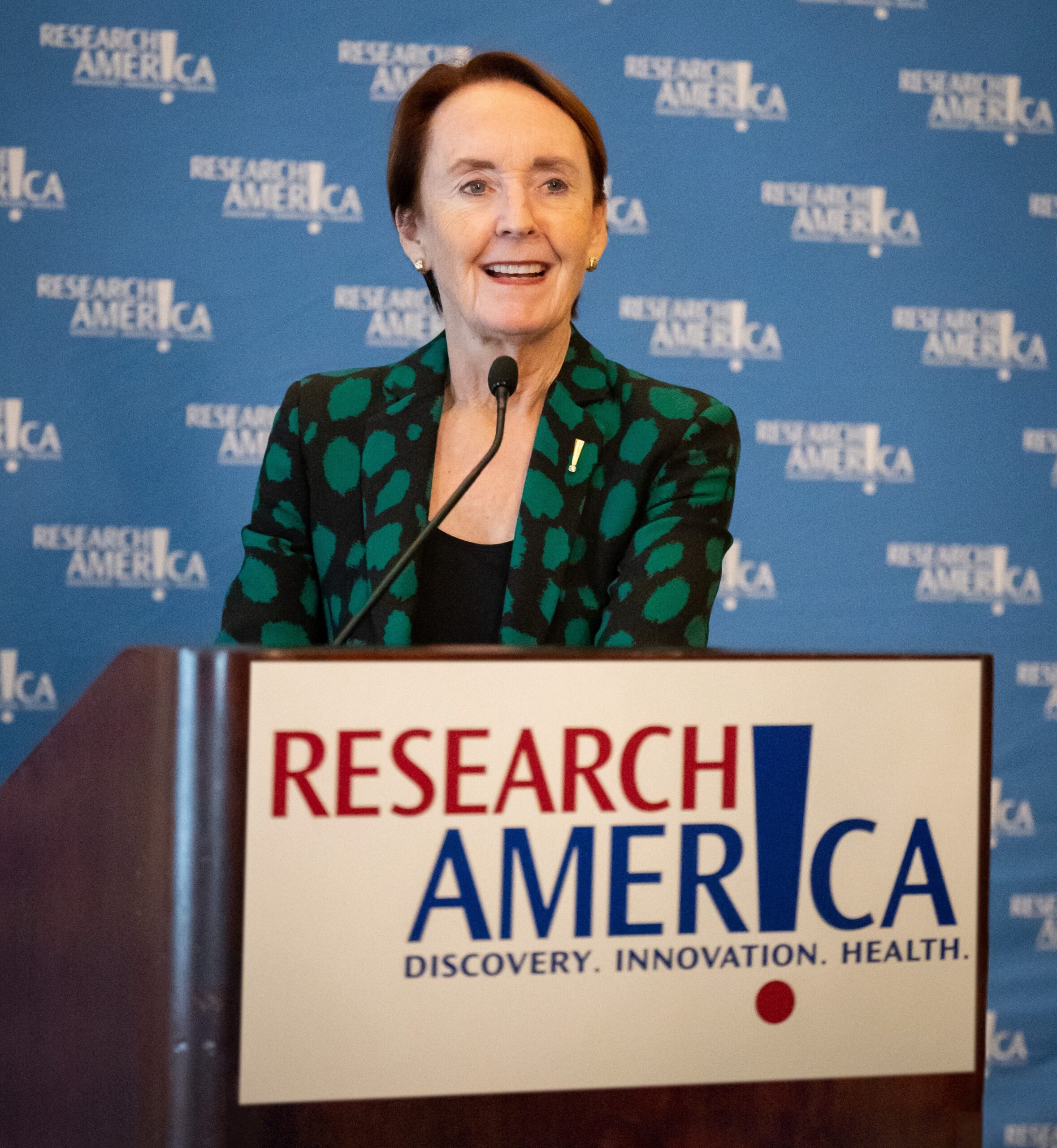What Is Possible

It seems like the right time to remind ourselves of the power of common cause.
On May 19, 2015, two extraordinary champions for faster medical and public health progress – Fred Upton (R-MI), who served in Congress from 1987 to 2023, and Rep. Diana DeGette (D-CO) – introduced the 21st Century Cures Act (the Cures Act). The Cures Act (here is a section-by-section summary) encompasses numerous provisions aimed at strengthening the discovery, development, delivery continuum.
Advocates from across the patient community and the R&D ecosystem played a critical role in achieving passage of this legislation. Then came Cures 2.0, another extraordinary, bipartisan effort that informed the complexity of policy and funding decisions Congress made during the height of the COVID-19 pandemic.
Now we have an opportunity to weigh in on Cures 3.0, a legislative initiative Rep. DeGette and Rep. Larry Bucshon, MD (R-IN) have launched to up the game, seizing on opportunities – whether it’s a course correction or a new avenue – to accelerate the progress all of us want.
Which Brings Me To…: If you are with a Research!America alliance member organization, join us on Wednesday, July 24, at noon ET for a conversation with the staff members supporting Reps. DeGette and Bucshon as they seek input on Cures 3.0. Email Jacqueline Lagoy for the link to register.
On the Hill: Both the House and Senate Appropriations Committees have completed their markups of the Agriculture, Rural Development, Food and Drug Administration, and Related Agencies Bills. The House bill includes a discretionary funding level of $3.5 billion for the FDA, which is $22 million below the 2024 level. The Senate markup resulted in a higher funding allocation for the FDA compared to the House, providing $3.544 billion in discretionary funding (a $22 million increase over FY24 funding levels). As the Alliance for a Stronger FDA noted in its statement, neither legislation approaches the funding FDA needs given the weight and significance of its responsibilities. Check out this FDA infographic, which captures the depth and breadth of the agency’s role and watch this space for advocacy opportunities.
Problem Solvers Caucus: If you are with a Research!America alliance member organization, join us on Thursday, July 25, at 11:30 a.m. ET for a Zoom alliance members-only meeting with Toby Douthat, the Executive Director of the House Problem Solvers Caucus. We’ve asked Toby to provide a quick 101 on this important bipartisan alliance. If you are with a Research!America alliance member organization, email Jacqueline Lagoy for the registration link.
Clinical Trials Hill Briefing: We hope you will join and encourage your contacts on Capitol Hill to attend an in-person briefing focused on the who, what, why, and how of clinical trials. “Understanding the Power and Possibility of Clinical Trials” will take place Tuesday, July 30, from noon to 1:30 p.m. ET in 2075 Rayburn House Office Building. Lunch will be available. Space is limited, so register soon.
Award-Winning Report: The State of Science report released last December by the Science and Technology Action Committee (STAC) has received a communications accolade, an APEX Award, putting it in the company of the Lawrence Livermore National Laboratory and the NFL, among others. Kudos to the STAC team for this achievement.
Among its recommendations, the report highlights the need for additional resources to train STEM workers to meet growing demand. Failing to address this demand threatens our ability to compete globally. The U.S. took an important step in meeting this challenge with the 2022 enactment of the CHIPS and Science Act – but we’ve fallen behind on funding the science programs authorized in the Act. A recent op-ed by Shalin Jyotishi points out the consequences of underfunding important training programs created in CHIPS and Science to meet growing STEM workforce needs.
Register Now for an Eye-Opening Alliance Discussion: Ancestry-associated genes have an important impact on mental health, yet only 5% of neuroscience research participants are from underrepresented populations. What are the implications of this gap for urgently needed progress and what can be done to address it? Join us tomorrow at 11 a.m. ET for a thought-provoking discussion on an underappreciated research and public health challenge. Speakers include: The Rev. Alvin C. Hathaway, Sr.; Daniel Weinberger, MD; Kafui Dzirasa, MD, PhD; and Gwenaëlle E. Thomas, PhD.
Innovating for Impact Awards Nominations: The GHTC (global health technologies coalition) is calling for nominations for this year’s Innovating for Impact Awards, recognizing research partnerships and policymakers that help transform groundbreaking research into treatments and other tools to fight global health challenges. GHTC is seeking nominations until July 31.




